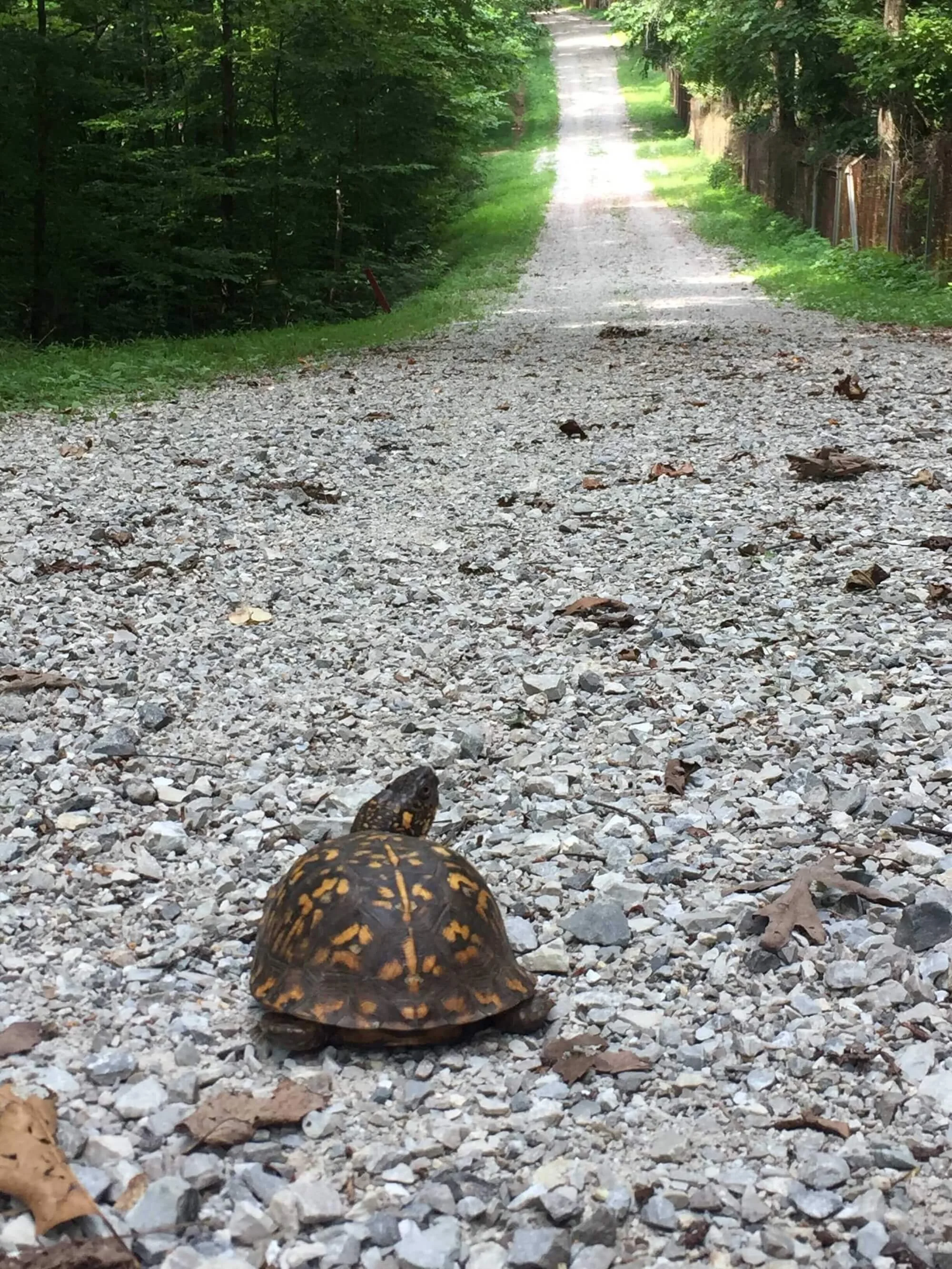Is It Really a Problem?
This evening on my trail run, I saw a box turtle.
Normally when I see one, it watches me for a second, then pulls back into its hard, helmet-like shell like I’m some obvious predator. I always feel misunderstood and want to reassure it—I’m not here to hurt you. I’d help you cross the road if you needed it. Right now, I’m just passing through your living room. Don’t mind me.
But this one was different. It looked right at me for a few moments, then just…kept walking. Not hurried. Not hiding. Just went about its turtle business like it knew I wasn’t a threat.
And I thought—that’s the way it is in a race. Not everything is a problem.
Think back to your last race—you know the feeling. So many problems.
The course gets changed. Your stomach starts to feel uneasy. You’re ahead of pace—too far ahead. You’re behind pace—too far behind. Someone passes you. You pass someone you usually don’t. Doesn’t matter what it is—your brain flags it all the same: this is a problem.
Naturally, we try to solve everything. Every new thing gets added to the running list in your head: okay, now I’ve got to do something about this too. We think if we fix it all, we’ll be fine. We’ll finish.
But here’s the problem with that approach: Your brain, doing its normal job of scanning for threats, is now in a race, so it starts seeing everything as a threat. Even the good news.
Before long, you’re carrying a pile of “problems” so big you can’t untangle it. No wonder the race feels hard. Which one do you solve first?
Here’s a place to start: They might not all be real.
What if you didn’t automatically treat every change, every unknown, every unexpected thing as a problem?
What if, like my turtle friend, you gave it a second look first?
Here’s the simplest way to do that: Before you add it to the growing list, pause and ask yourself, “Is this really a problem?”
Not “could it be?”
Not “has it been in the past?”
Not “what did that one runner ahead of me say about it?”
Just—is this actually a problem? For me? Right now?
Because some of those disaster-looking things? They might be a gift.
Like the course being changed the day before the race.
Yeah, it’s not what you planned for. But maybe the new course suits your strengths better. Maybe it takes you off muddy, rutted jeep roads and onto soft singletrack. Maybe the steep climb is steeper—but shorter. Check the details first. Don’t assume it’s bad just because it’s different.
Or when you realize you’re ahead of cutoff by more than you expected.
Instead of panicking that you’ve gone out too fast and are about to pay for it, consider this: you might be right on time. You might be having a good day. And you can always adjust your pace—because now you have room to do it. It’s not a problem. It’s a cushion.
And rain.
Yes, rain can mean blisters. But if it’s a hot summer day and the air feels like a steamy shower? That rain might be the miracle that keeps your core temp down and your stomach stable. What if that dark cloud is the very thing that gets you to the finish line?
Here’s the magic of asking “Is this really a problem?”
You’ll find that some things aren’t problems at all.
Some are just…neutral. Some are actually good things in disguise.
And the real problems? They’re easier to see—and solve—when they’re not buried under a pile of false alarms.
So let your brain do its job. Let it scan. But don’t take every alert as gospel.
Some things that look like trouble might actually be helpful.
You don’t have to pull into your shell every time something unexpected shows up on the trail.
You can pause. Give it a look. See it for what it is—not what fear says it might be. Maybe that thing isn’t a problem. Maybe it’s even good.
Just like my unstoppable little turtle.

